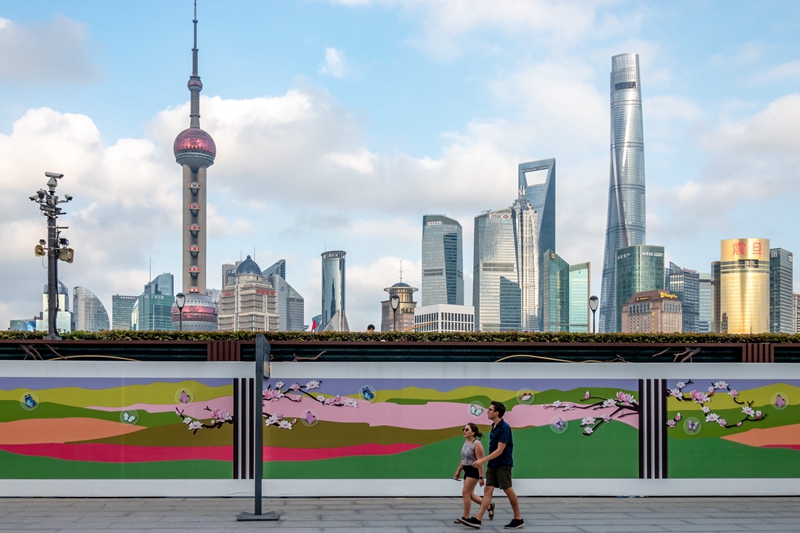
China’s development over the last 70 years has been absolutely breathtaking. At the point when Chairman Mao Zedong announced the founding of the People’s Republic of China in 1949, many people were predicting that it was not going to last. The country was isolated, devastated by the war, surrounded by hostile powers, and still dealing with the internal upheaval of its civil war. The outlook did not look good. But the firm commitment shown by the Party to both unite the nation and to develop it as a strong nation was unequivocal. Secondly, because of the commitment of the Party to improving the people’s livelihood, problems that developed along the road were always ultimately resolved on the basis of that commitment.
With the reform and opening-up, much of the isolation imposed on China during the Cold War was broken and China was then open to the world in all respects, and thus was given an opportunity to accelerate its own development process with increased trade and foreign investment to accelerate its own development process. The underlying driving force for this has been the striving for ever greater advances in science and technology. This has been made the prime impetus in the economic development program. While it has been there from the beginning, with fits and starts, it was really with the conceptualization of the “four modernizations” by Zhou Enlai in 1963 that the concept was clearly enunciated. And with the reform and opening-up, this was the mechanism by which China could transform itself from a low-wage manufacturer for the world economy into a major producer of high-value products within an incredibly short period of time.
Obviously this dramatic growth caught the attention of the world, particularly the attention of other developing countries, which still find themselves in a condition of stagnation. China, for them, became a model to follow, creating a sense of optimism that poverty and stagnation can be overcome by concerted efforts. In China, of course, these efforts were spearheaded by the Communist Party of China. But in other countries there are also numerous possibilities for creating a national will around a popular leader or party which could also move in the same direction. China’s “going out” and particularly, the Belt and Road Initiative, meant that China would be playing a “pro-active” role in helping these nations advance. And such initiatives have won the blessing of the international community in general as symbolized by the UN statements in support of the BRI.
The growing importance of China in global development has also created an opportunity for changing the paradigm by which nations relate to each other, namely the paradigm of “geopolitics.” This has led, through the previous centuries, to so much turmoil and destruction that it is time to change the paradigm. China has proposed its notion of a community with a shared future for mankind as this new paradigm in which nations give equal consideration to the interests of others in charting out their national political goals. And China, in its new diplomacy, has championed this policy in practice. But there is still much convincing to do, as other nations have still proven reticent to leave the mold of “geopolitics.” However, such a community of shared interests is an idea whose time has come.
___________
WILLIAM JONES is the Washington Bureau Chief for Executive Intelligence Review and a non-resident fellow of the Chongyang Institute for Financial Studies at Renmin University of China.